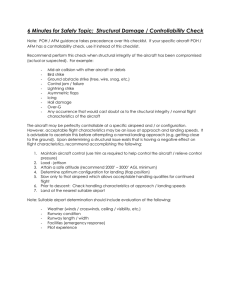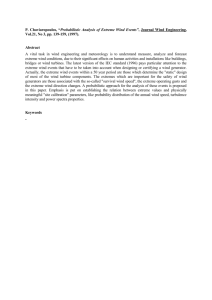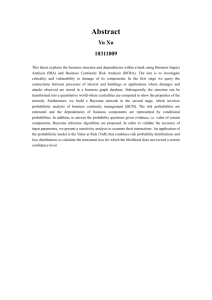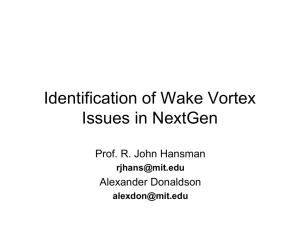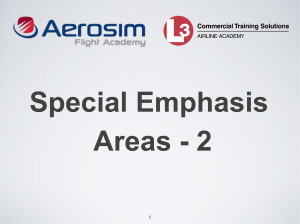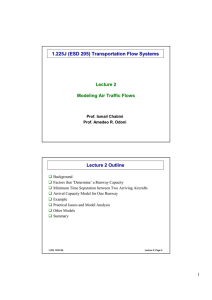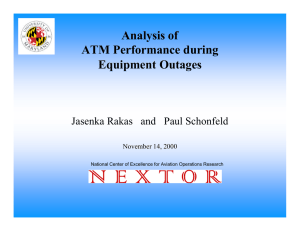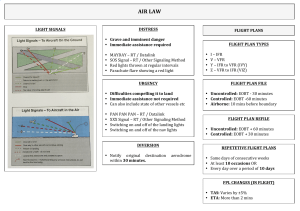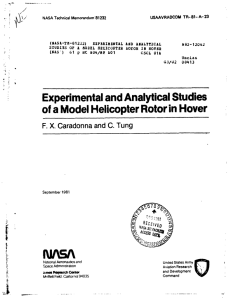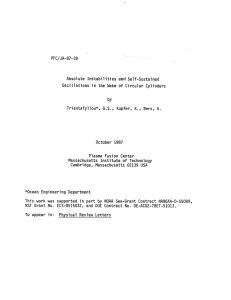Safety Analysis Group Center for Air Transportation System Research
advertisement
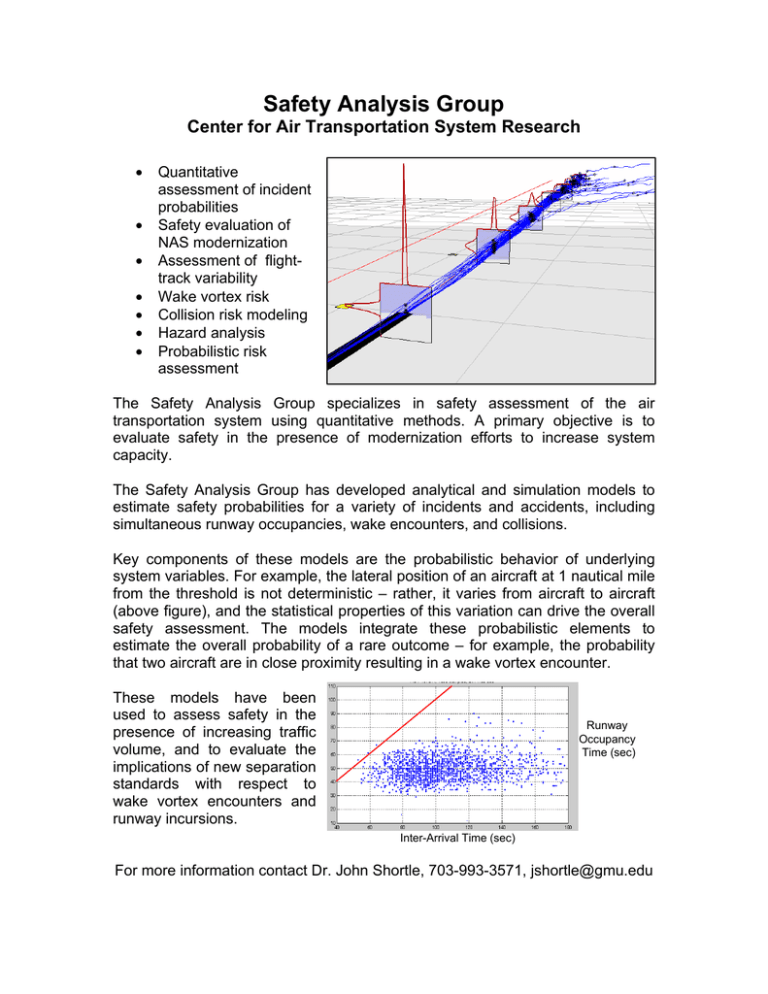
Safety Analysis Group Center for Air Transportation System Research • • • • • • • Quantitative assessment of incident probabilities Safety evaluation of NAS modernization Assessment of flighttrack variability Wake vortex risk Collision risk modeling Hazard analysis Probabilistic risk assessment The Safety Analysis Group specializes in safety assessment of the air transportation system using quantitative methods. A primary objective is to evaluate safety in the presence of modernization efforts to increase system capacity. The Safety Analysis Group has developed analytical and simulation models to estimate safety probabilities for a variety of incidents and accidents, including simultaneous runway occupancies, wake encounters, and collisions. Key components of these models are the probabilistic behavior of underlying system variables. For example, the lateral position of an aircraft at 1 nautical mile from the threshold is not deterministic – rather, it varies from aircraft to aircraft (above figure), and the statistical properties of this variation can drive the overall safety assessment. The models integrate these probabilistic elements to estimate the overall probability of a rare outcome – for example, the probability that two aircraft are in close proximity resulting in a wake vortex encounter. These models have been used to assess safety in the presence of increasing traffic volume, and to evaluate the implications of new separation standards with respect to wake vortex encounters and runway incursions. Runway Occupancy Time (sec) Inter-Arrival Time (sec) For more information contact Dr. John Shortle, 703-993-3571, jshortle@gmu.edu
